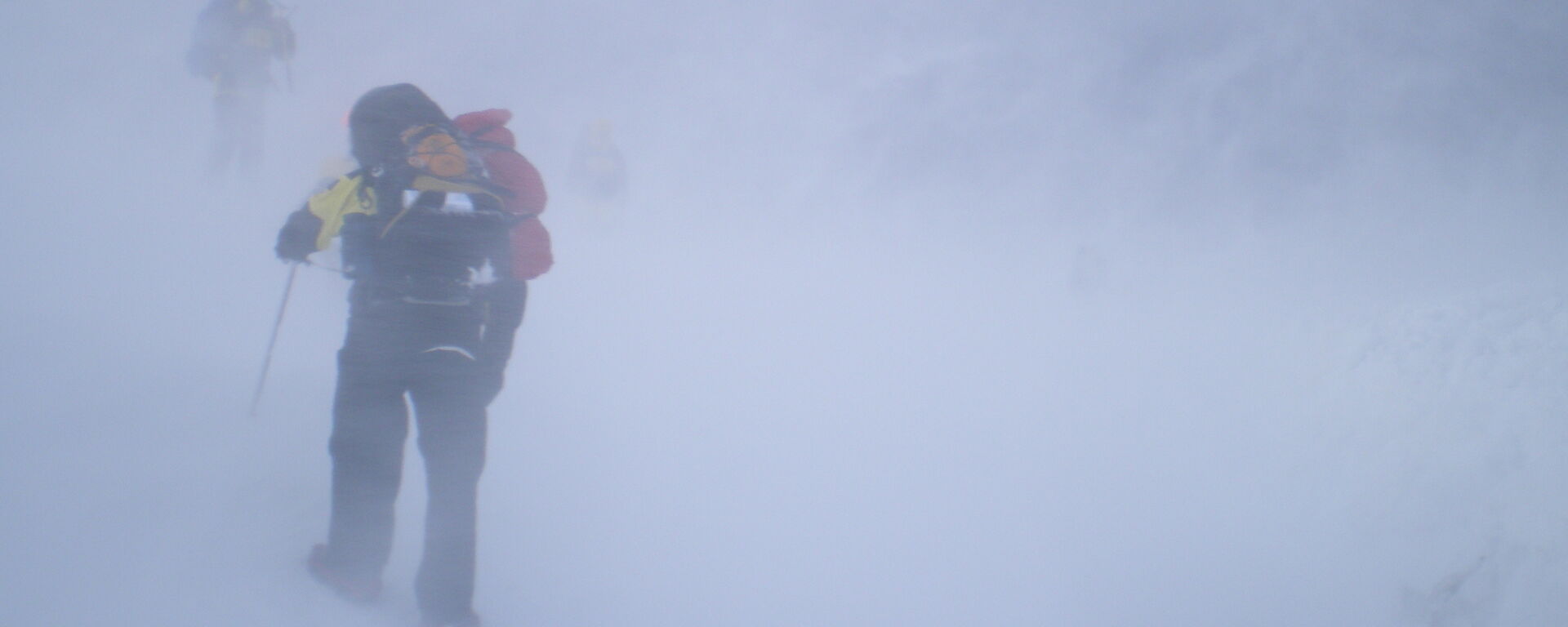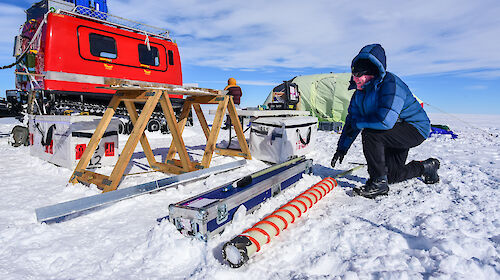“We know that Antarctic expeditioners experience a slowing of their cognition and changes in physiology over an Antarctic winter,” PMU Deputy Chief Medical Officer, Dr John Cherry, said.
“These changes are very similar to the changes experienced by astronauts in both long and shorter duration spaceflight.
“Both groups have reported declines in mood and motivation, and experience sleep disturbance, which can increase the chances of interpersonal conflicts, affect group cohesion and impact mission success.
“Understanding these changes and their impacts, will allow us to better support our expeditioners’ health and wellbeing, to ensure they’re operating at a high cognitive level before undertaking Antarctic duties.
“It will also help space agencies understand and reduce behavioural health risks for astronauts in future long duration spaceflight.”
The cognitive research requires Antarctic expeditioners to perform a range of cognitive tests on a laptop, once a month, over winter.
The tests are currently used on the International Space Station and on crewed commercial spaceflights. They measure the speed and accuracy of mental processes such as thinking, learning, memory and perception.
At the same time, Antarctic expeditioners wear a small biosensor (Bio-Button) on their chest that measures physiological changes such as heart rate, temperature and breathing, as well as sleep and movement.
“We know cognitive changes can affect a person’s physiology, so for a few days around the time we’re doing cognitive testing, expeditioners wear a biosensor,” Dr Cherry said.
“We’re working with a team at the University of Pennsylvania to integrate the results from both tests into a model, to provide a more robust picture of the changes expeditioners experience.”
At Davis research station, wintering doctor, Anthony Rengel, is working with expeditioners to collect data for the project.
“They’re excited to be involved in science that is being conducted simultaneously in Antarctica and in space, knowing that it will contribute to the success of future space exploration,” Dr Rengel said.
The PMU team aim to extend the study later this year with a trial of vision tracking glasses from US eye-tracking technology company HarmonEyes.
“One of the challenges of cognitive testing is that it requires an expeditioner or astronaut to sit down for 20 minutes and use a laptop,” Dr Cherry said.
“New wearable technology that uses software algorithms to track eye movements, as a marker of both cognition and fatigue, could allow non-intrusive real-time assessment that may inform traditional testing.
“It’s exciting to be at the cutting edge of such innovative research that’s going to support Australian’s working in Antarctica and astronauts on the way to the Moon or Mars.”
*The Translational Research Institute for Space Health (TRISH) is a United States-based institute led by Baylor College of Medicine’s Center for Space Medicine, in partnership with the California Institute of Technology and Massachusetts Institute of Technology. TRISH is empowered by NASA’s Human Research Program and is funded through a cooperative agreement.






